As cryptocurrency adoption grows, many users are looking for crypto wallets that don’t need verification. Traditional exchanges and wallets require KYC (Know Your Customer) verification, including ID documents and sometimes even selfies. While this improves compliance, it reduces privacy and can delay access.
Fortunately, several no-verification crypto wallets allow you to store, send, and receive digital assets without submitting identification. In this guide, we’ll cover the best crypto wallets without KYC, how they work, their pros and cons, and answer common questions people ask about them.
What is a Crypto Wallet?
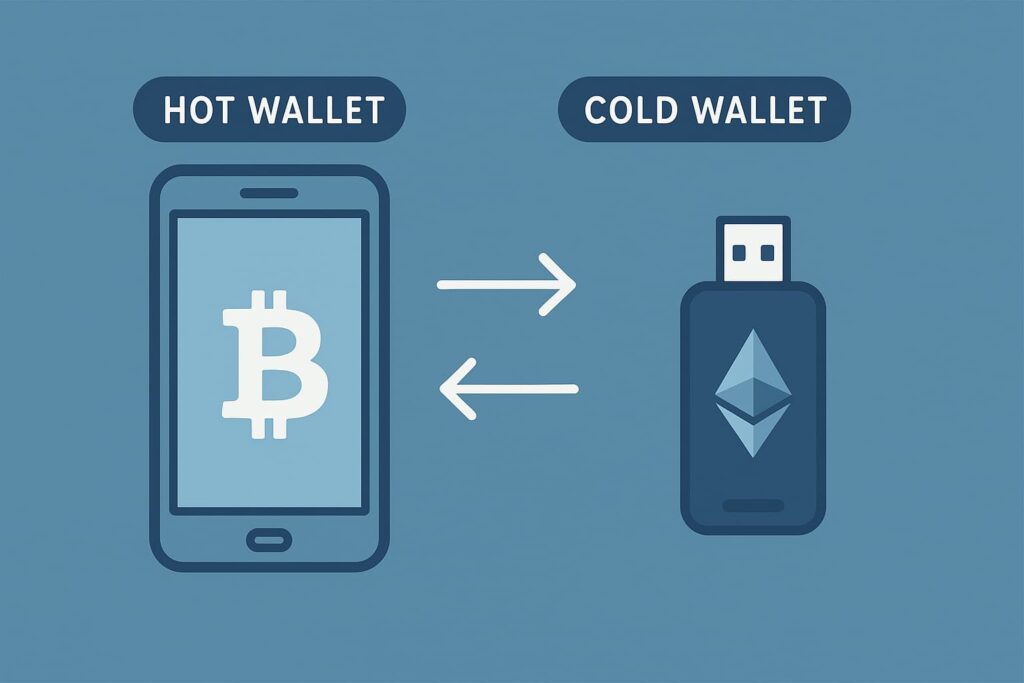
A crypto wallet is a digital tool that allows users to store, send, and receive cryptocurrencies like Bitcoin, Ethereum, and stablecoins. It works like a bank account but gives you complete control over your funds without a centralized authority.
👉 A wallet can be hot (online) or cold (hardware/offline), depending on how you want to manage security. If you’re considering long-term investments, you may also want to compare with traditional assets such as gold in 2025 to balance your portfolio.
What Are No-Verification Crypto Wallets?
A no-verification crypto wallet (sometimes called a no-KYC wallet) allows you to create and use a wallet without providing personal identification. Unlike centralized exchanges, these wallets focus on privacy and decentralization.
They are especially popular among users who:
- Value privacy and anonymity.
- Live in regions with restricted access to certain crypto exchanges.
- Want to avoid delays in account verification.
For example, coins like Pi Network gained traction among users who preferred easier, more private access to crypto ecosystems.
Best Crypto Wallets That Don’t Need Verification in 2025
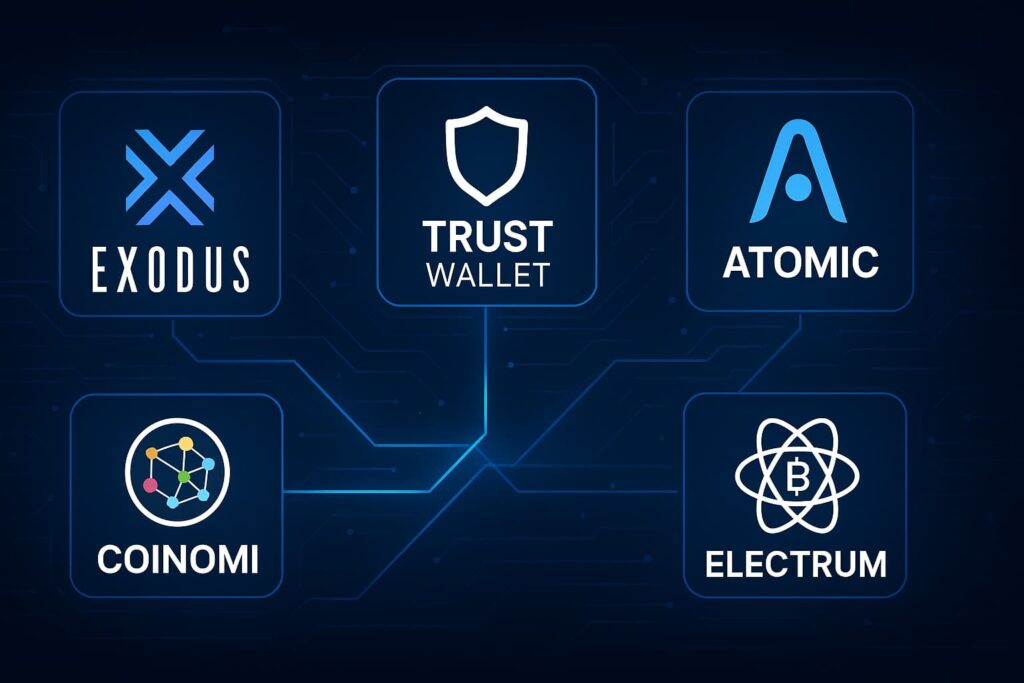
Here are the top options for 2025:
1. Exodus Wallet
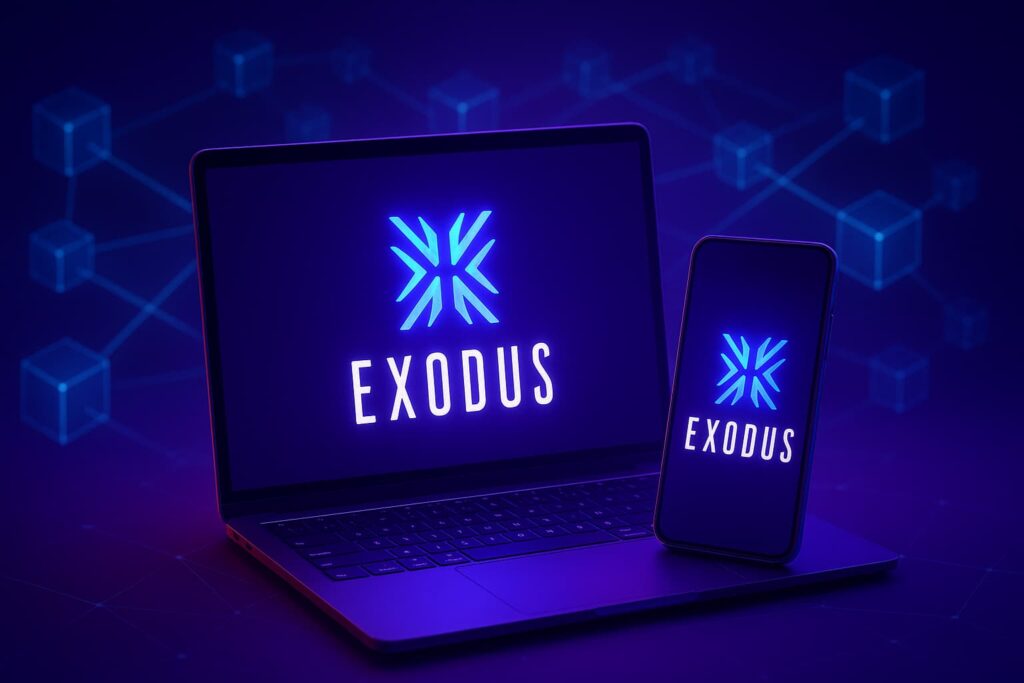
- Type: Software Wallet (Desktop & Mobile)
- Key Features: Supports 200+ assets, built-in exchange, private keys stay on your device.
- Why No Verification? You can download and start using it instantly without an ID.
🔗 Exodus Official Website
2. Trust Wallet
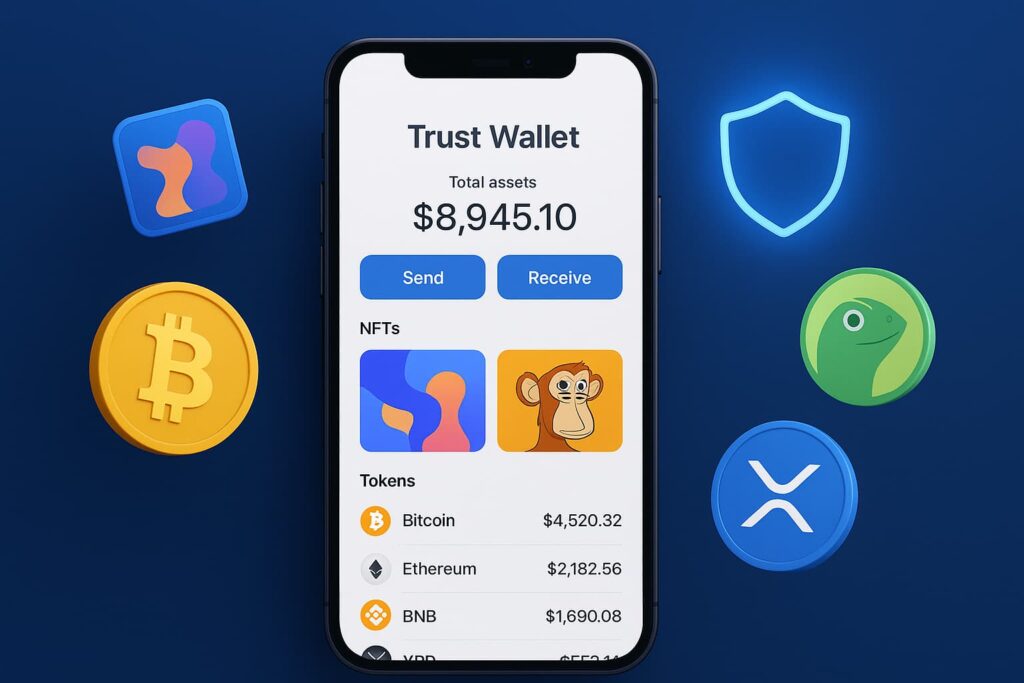
- Type: Mobile Wallet (Acquired by Binance)
- Key Features: Supports 70+ blockchains, NFT storage, and a DApps browser.
- No Verification? Yes, you can create a wallet with a recovery phrase — no KYC.
🔗 Trust Wallet Official
3. Atomic Wallet

- Type: Desktop & Mobile
- Key Features: Private keys encrypted locally, staking options, and wide coin support.
- No KYC? Required only if you use built-in third-party exchanges; for basic use, no ID needed.
🔗 Atomic Wallet Official
4. Coinomi Wallet
- Type: Mobile & Desktop Wallet
- Key Features: Multi-chain wallet with strong privacy features.
- Verification? None for setup, full control over private keys.
🔗 Coinomi Official
5. Electrum (for Bitcoin users)
- Type: Desktop Wallet (Open Source)
- Key Features: Fast, lightweight, highly secure.
- Why No KYC? Purely a Bitcoin wallet, it requires no ID to use.
🔗 Electrum Official
Other Notable Mentions
- Fintechzoom.com crypto wallet – Popular in finance discussions. For real-time updates, see Fintechzoom live crypto prices.
- Ecrypto1.com crypto wallets – Provides educational insights, but is not widely trusted as a wallet provider.
- Trump crypto wallet – A trending search term tied to political branding in crypto, not a reliable solution yet.
- AI-integrated smart crypto wallet – An emerging trend in 2025 with advanced fraud detection and smart asset management.
Pros and Cons of No-Verification Wallets
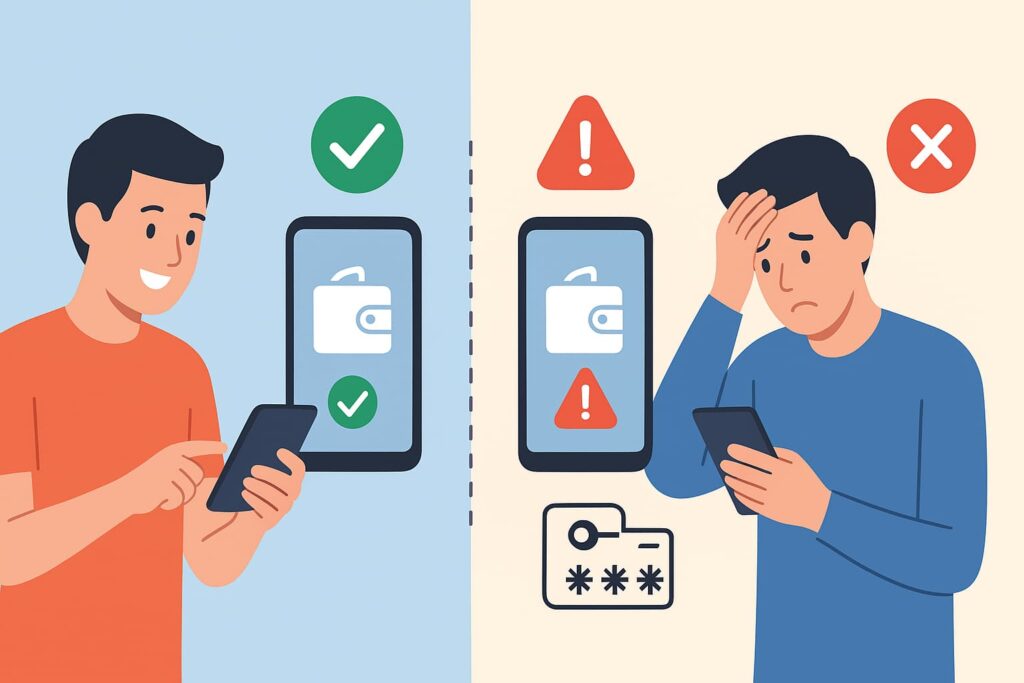
✅ Pros:
- Instant setup (no waiting for KYC approval).
- Enhanced privacy and anonymity.
- Better global accessibility.
❌ Cons:
- No official customer support helpline. Be careful — many fake support numbers exist (a common scam during every crypto bull run).
- There is no official customer support helpline for crypto wallets. Be careful when you see phone numbers claiming to be for support. Most of these numbers are fake and created to scam users.
- Higher risk if you lose your recovery phrase (no ID to restore account).
- Limited integration with fiat currency on-ramps.
How to Transfer Crypto from Coinbase to Coinbase Wallet
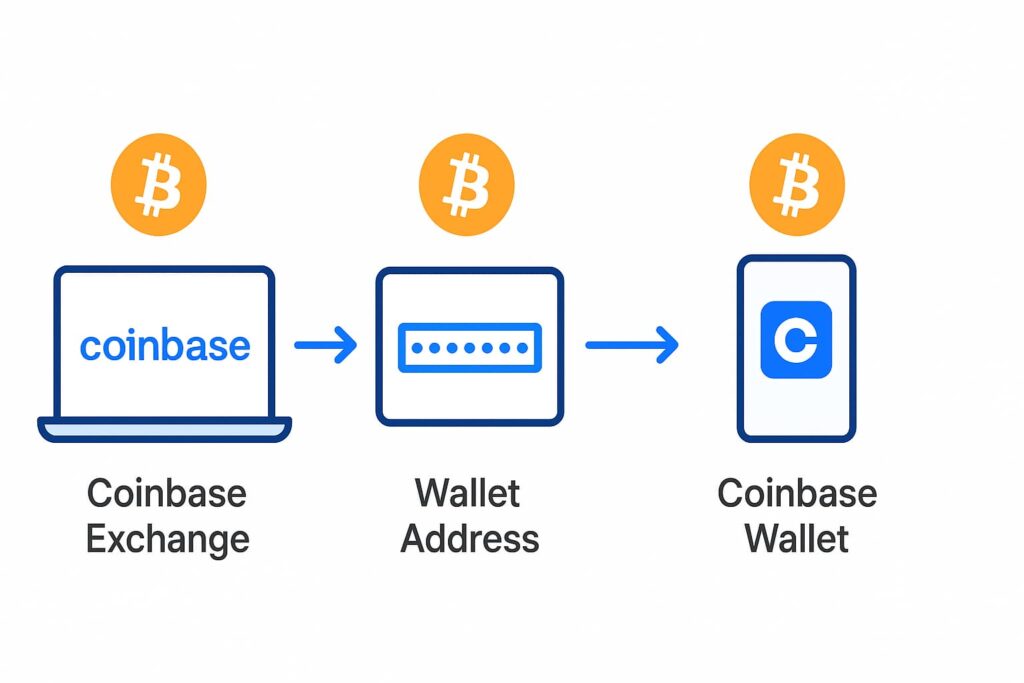
Many users ask how to move funds between Coinbase Exchange and Coinbase Wallet. Here’s the process:
- Open the Coinbase Wallet App.
- Copy your wallet address.
- In your Coinbase Exchange account, go to Send/Receive.
- Paste your Coinbase Wallet address and enter the amount.
- Confirm transaction.
🔗 Coinbase Help – Transfer Guide
Future of No-KYC & AI-Integrated Wallets

By 2025, wallets with AI integration will likely dominate:
They will provide:
- Fraud detection.
- Smart portfolio management.
- Predictive transaction risk scoring.
This aligns with the broader trend of AI reshaping finance, much like how analysts look at Bitcoin investment strategies and XRP price predictions for 2027.
Frequently Asked Questions
Which crypto wallet is best?
The best wallet depends on your needs:
- For privacy/no KYC → Exodus, Trust Wallet.
- For hardware-level security → Ledger Nano X or Trezor.
🔗 Ledger Official
Is crypto legal in the USA?
Yes. You can legally buy, sell, and trade crypto in the U.S. through regulated exchanges like Coinbase and Kraken. The IRS treats crypto as property, so gains and losses must be reported for taxes.
Is crypto wallet available in the USA?
Yes. Wallets like Coinbase Wallet, MetaMask, and Trust Wallet are widely available and supported in the U.S.
Is crypto wallet available in the UK?
Yes. Popular options such as Binance Wallet, Trust Wallet, and MetaMask can be used in the UK.
Is crypto wallet available in India?
Yes. Wallets like WazirX Wallet, Trust Wallet, and Coinbase Wallet are available for Indian users.
How do I get a crypto wallet?
You can simply:
- Download a wallet app (like Trust Wallet or MetaMask)
- Set up your recovery phrase
- Start sending/receiving crypto instantly
What is the best wallet for crypto?
The best wallet depends on your needs:
- For beginners: Trust Wallet
- For DeFi users: MetaMask
- For maximum security: Ledger Nano X (hardware wallet)
Is a BTC wallet free?
Yes, most Bitcoin wallets (like Electrum, Exodus, or mobile apps) are free to use. However, hardware wallets like Ledger or Trezor require purchase.
What is a wallet in crypto?
A crypto wallet is software (or hardware) that stores private keys and allows you to interact with blockchain networks. Without it, you can’t securely hold or send crypto.
Who owns MetaMask?
MetaMask is developed and owned by Consensys, a blockchain software company.
What is the best crypto wallet app?
Trust Wallet and Exodus are considered the best wallet apps in 2025.
What are the top 10 crypto wallets?
You can explore the Top 10 crypto wallets with updated rankings on the CoinMarketCap Wallet List. This list is regularly updated to reflect the most trusted and widely used wallets. Following are the most widely used wallets:
Ledger, Trezor, Trust Wallet, Exodus, Atomic, Coinomi, MetaMask, Electrum, Guarda, and Mycelium.
What is a crypto wallet hardware device?
Hardware wallets like Ledger Nano X and Trezor store your crypto offline for maximum security.
How do I log in to a crypto wallet?
You don’t “log in” with an email; you access via private key or recovery phrase.
What is a crypto wallet address?
It is a unique alphanumeric string. You use it to send and receive cryptocurrency. Think of it as your crypto “bank account number.”
Where can I find crypto wallet discussions?
Check Crypto Wallet Reddit communities like r/cryptocurrency and r/Bitcoin.
How do I download a crypto wallet?
Go to official sites or app stores. Always check authenticity to avoid scams.
What are the 5 types of cryptocurrency wallets?
- Hot Wallets (online)
- Cold Wallets (offline hardware)
- Desktop Wallets
- Mobile Wallets
- Paper Wallets
Conclusion
For those who value privacy, speed, and ease of access, using crypto wallets that don’t need verification is the way forward in 2025. Options like Trust Wallet, Exodus, and Atomic Wallet strike the right balance between convenience and security.
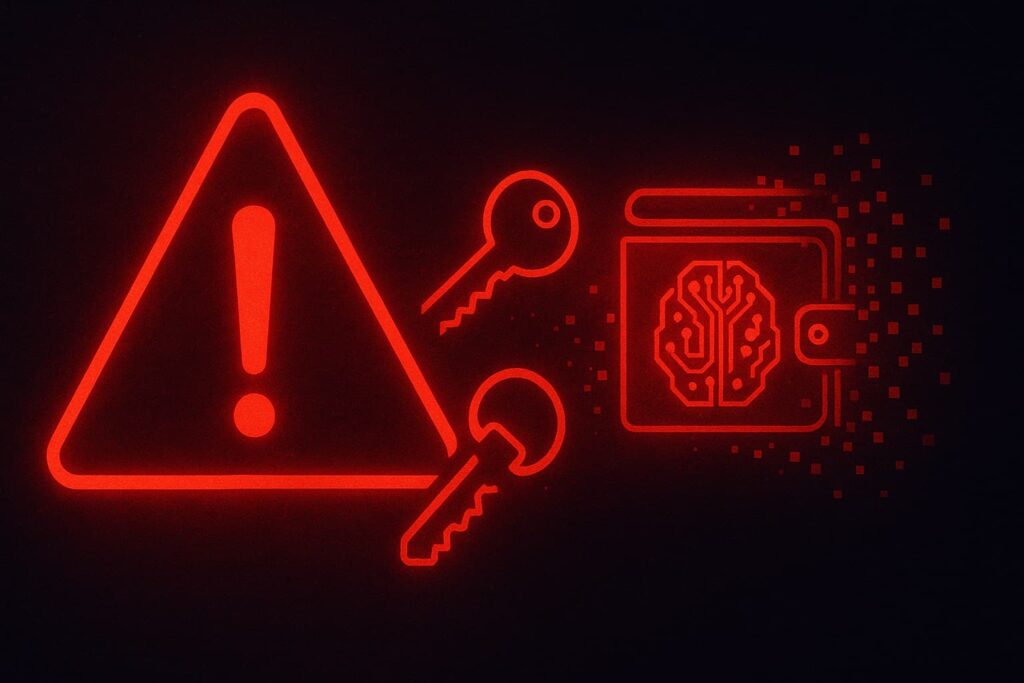
⚠️ Important Warning
With privacy comes responsibility. If you lose your private keys, there is no way to recover them. No company or support team can help you get them back. Stick to official websites, avoid fake support numbers, and use trusted wallets.
👉 Always remember: Your keys, your crypto.
For deeper insights into crypto trends, check out:
- Should You Invest in Bitcoin Now?
- Truth Behind the Crypto Bull Run 2025
- Why Crypto30x.com Zeus and Gemini Are Trending
By staying informed, you can manage crypto securely while keeping control of your identity and privacy.

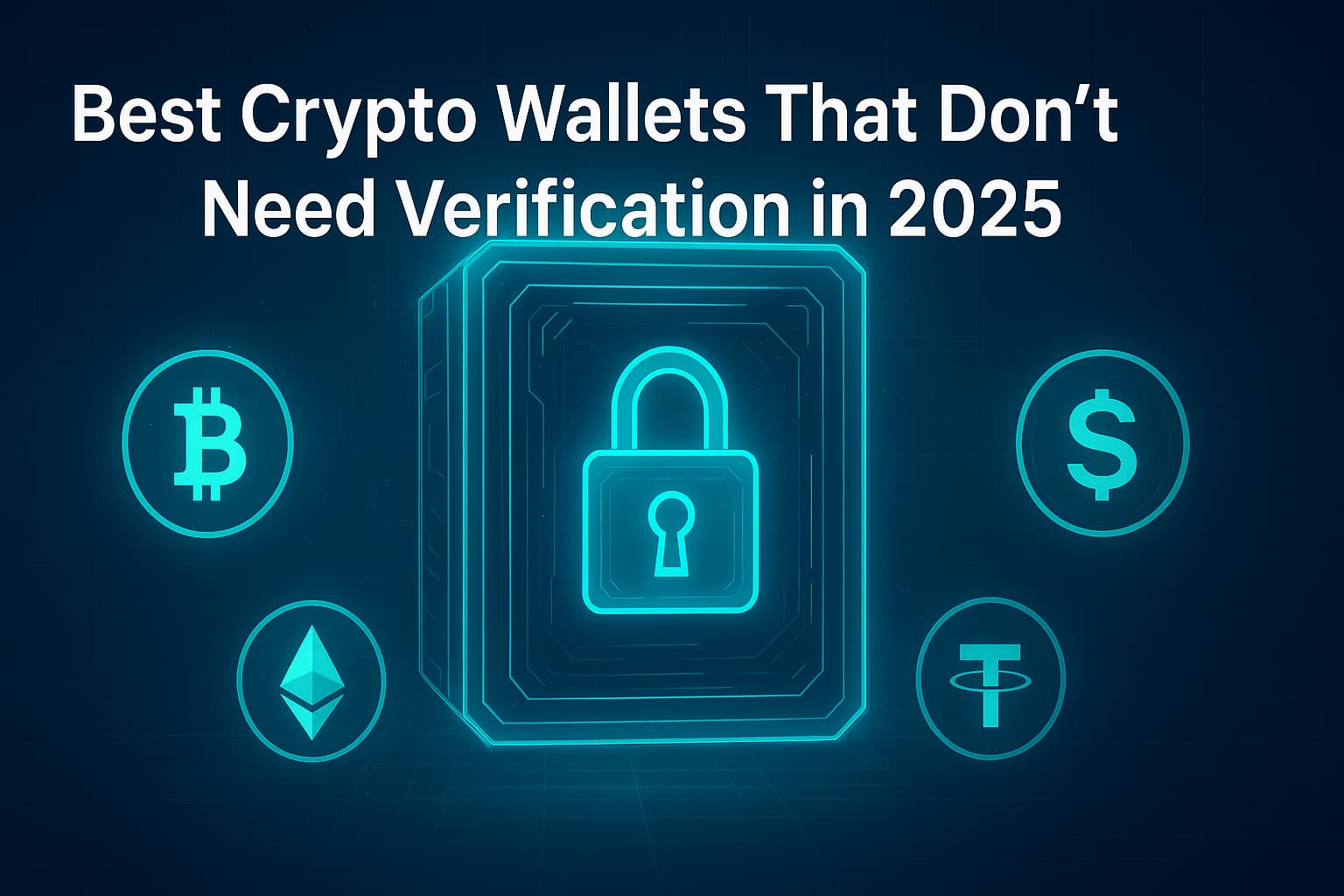
Leave a Reply